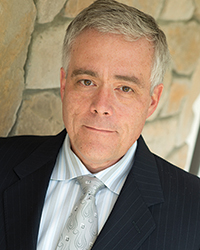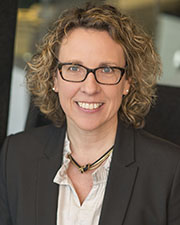

Hospitality is often thought of as a matter of “heads in beds” – a refuge for the weary business traveler at the end of the day. What if we could create a hotel-like operation for businesses themselves, one that would host, energize, and engage them on multiple fronts throughout the workday? That is exactly what CIC, a Cambridge Mass.-based global flexible workplace company and creator of innovation campuses, has done. Notably, CIC’s new CFO, Camilla Jensen – the co-author of this article – is a former Marriott senior executive. Jensen’s hiring makes explicit what has been implicit from the time of the company’s founding: in many ways, CIC is like a hotel for emerging companies and entrepreneurs, a hotel called an “innovation campus.”
In the post-pandemic world, new and different types of companies are increasingly considering a shift from traditional leased space to more flexible and adaptable space. The shift appears even more significant as companies of all sizes and maturities are catching on to the value proposition inherent in the flexible workplace and public space environments CIC provides. CIC’s model fosters the strong desire for in-person connection and collaboration that creative and intelligent people possess.
Would you like to gather with other bright minds and have a beer at Venture Café while listening to a startup pitch and then bounce ideas off one another? You got it. Need to have a meeting with an investor? No problem. You can book a conference room at CIC, decked out with the latest technology to make your presentation sparkle, not to mention hybrid meeting capabilities. Feeling peckish? Snacks and drinks are readily available in the common kitchens, including a variety of teas and healthy options. All included.
A workplace with the option to scale up or down on demand, and even into new locations in cities around the globe as the need arises, is a new paradigm. CIC clients may find themselves in cities in the US, Europe, or Japan – each campus with a wide variety of spaces available, all-inclusive amenities, high-touch client service, and 30-day terms. CIC can accommodate multiple sizes and types of setups, from hybrid, fully in-person, and coworking space to private and shared lab space for innovative life sciences companies. In addition, CIC provides strong community-building offerings for both big and small organizations. As new needs for flexibility and collaboration morph into the new normal for how we work, the winners of this pivotal shift in the industry will be companies that create a value proposition that goes beyond brick and mortar.
Jensen joined CIC earlier this year after a 16-year career at Marriott. “I was intrigued by the obvious parallels to the classic hospitality industry inherent in CIC,” she said, noting that the flexible workplace industry is still in its infancy and akin to the hotel industry of 20+ years ago. In the post-pandemic work environment, the way we collaborate, and work together appears changed forever. There continues to be a strong desire to collaborate face-to-face, but with greater emphasis on flexibility and hybrid options.
Jensen added, “When I saw the unique approach deployed by CIC compared to the traditional shared office space model, and even other operators in shared space, I did not hesitate to join the company. CIC has created an offering that positions it much like a boutique hotel providing location, quality, and experience…much more than just a building and a desk.”
As other members of NEREJ’s hospitality advisory board would tell you, the feasibility of a hotel depends upon its demand generators. CIC creates demand in part by co-locating its innovation campuses in proximity to, and often in collaboration with, the world’s premier universities and prominent movers and shakers that are churning out the entrepreneurial, innovative thinkers drawn to its model. Hotel brands seek to build guest loyalty, as does CIC by creating innovation communities that provide opportunities for exceptional entrepreneurial clients to collaborate, network, and share resources, which helps them grow faster and better.
While hosting innovative, creative, and collaborative businesses is CIC’s model, the system could not succeed without the people in place to implement it. Turn to any one of CIC’s social media channels (@CICNOW on Instagram or Cambridge Innovation Center on LinkedIn) to find innumerable posts by various CIC-ers celebrating the achievements and adventures of CIC’s clients and staff. Hospitality is, after all, about being hospitable. If you look carefully enough around any CIC campus you’ll readily spot the concierge, front desk, housekeeping, engineer and food and beverage. The most successful hotel companies are those that recruit, retain, and promote the right people for the right jobs. CIC’s employees are engaged in the company and dedicated to its mission to fix the world through innovation. They contribute to its creativity and they feel valued. As the long-time general manager of a landmark Boston hotel once remarked, “We want our people to get up and ‘skip to work’ every day.” Those people are integral to the guest experience not only through the level of service they provide, but also by the attitude they project, and happiness is often contagious.
During the height of COVID, many real estate industry analysts opined that the pandemic would put an end to the shared workplace. At the time, it seemed easy to pay heed to the doomsayers. The numbers, however, have proven them wrong. While the early days of the pandemic were disheartening for any business, there were multiple signs of brand loyalty that signaled that shared workspace would indeed bounce back and grow. During the height of the pandemic, nearly two thirds of CIC’s pre-COVID clients chose to retain their membership. After announcing strong vaccination policies at its U.S. innovation campuses, CIC experienced a near 10% increase in U.S. revenues over the 10 weeks following the announcement. In March of 2022, CIC’s Massachusetts sales team fielded more inquiries for new space than at any other time in the company’s history. Campus tours in January 2022 increased by 43.5% as compared to December 2021. Most remarkably, occupancy in CIC’s Massachusetts campus is on pace to exceed pre-COVID levels. During the pandemic, the company also expanded around the world, launching locations in Japan and Poland.
What does the future hold for innovation, collaboration, and workplace environments? We can only speculate, but we are confident that we’ll see it first at CIC.
Ken MacKenzie is partner of Dalton & Finegold, LLP and a member of the International Hospitality Consultants (ISHC).
Formerly MacKenzie was the co-leader of the hospitality and recreation group at Goulston & Storrs. MacKenzie represents institutional investors, private equity funds, investment managers, pension funds, university endowments, REITs, major lending institutions and developers in the acquisition, financing and disposition of all classes of real estate assets both nationally and internationally.
MacKenzie specializes in transactions involving hospitality assets and has significant experience in large-scale joint-ventured deals, often involving non-profit institutions such as universities or hospitals. He frequently assists clients in structuring their responses to RFPs for complex mixed-use projects.
MacKenzie received his A.B. from Dartmouth College and his J.D. from Boston University School of Law, where he graduated magna cum laude. MacKenzie is admitted to practice law in the state of Massachusetts.
Camilla Jensen is the chief financial officer at CIC. She is an experienced leader focused on driving results at the intersection of vision, strategy and financial acumen. Having spent 16 years at Marriott International, Jensen held multiple roles with responsibilities including finance, asset management, crisis management, negotiating workout agreements and optimizing the merger synergies between Marriott and Starwood. In addition to her expertise in the hospitality industry, Camilla also brings an international perspective, having grown up in the Danish/German border region and working throughout Europe, the Americas and in select countries in Africa and Asia over the course of her career. She has an MBA from American University in Washington DC and a Master of International Business and Languages from Odense University in Denmark.
